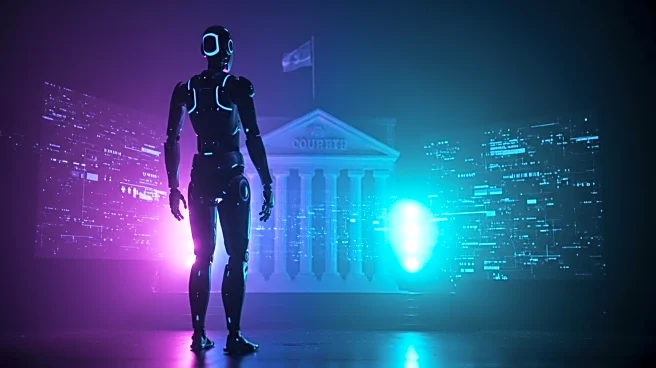What's Happening?
Midjourney, an AI image platform, has responded to a lawsuit filed by Disney and Universal, which accuses the company of copyright infringement. The studios claim that Midjourney users have created images nearly identical to their copyrighted characters. Midjourney argues that AI training falls under 'fair use' and that copyright law does not grant absolute control over the use of copyrighted works. The company highlights that many of its subscribers have email addresses linked to Disney and Universal, suggesting that employees from these studios use the service. Midjourney's legal team contends that the studios are attempting to benefit from AI tools while simultaneously penalizing Midjourney for similar practices.
Why It's Important?
This legal battle underscores the growing tension between traditional media companies and emerging AI technologies. The outcome could set a precedent for how copyright laws apply to AI-generated content, impacting industries reliant on intellectual property. If Midjourney's defense of 'fair use' is upheld, it may encourage broader use of AI in creative fields, potentially benefiting tech companies and artists. Conversely, a ruling in favor of Disney and Universal could tighten restrictions on AI platforms, affecting innovation and collaboration in the visual effects industry.
What's Next?
The case will likely proceed through the courts, with both sides presenting arguments about the balance between copyright protection and technological advancement. Stakeholders in the entertainment and tech industries will be closely monitoring the proceedings, as the decision could influence future collaborations and the development of AI tools. Legal experts and policymakers may also weigh in, considering the implications for intellectual property rights in the digital age.
Beyond the Headlines
The lawsuit raises ethical questions about the use of AI in creative processes and the rights of original content creators. It also highlights the cultural shift towards integrating AI into traditional industries, prompting discussions about the role of technology in art and media. Long-term, this case could influence how society perceives the intersection of creativity and artificial intelligence.









